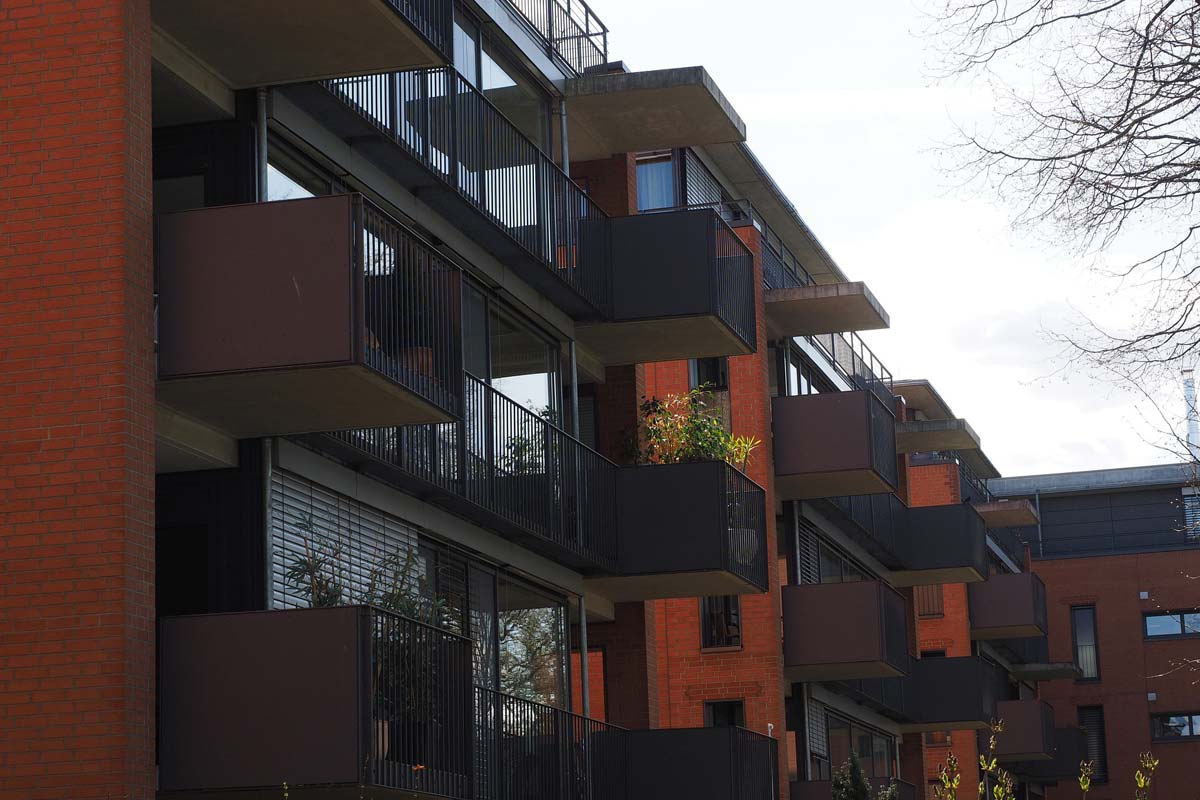Selling apartment with tenant: Rights, duties & special features
Selling Apartment with Tenant – Wanting to sell your rented apartment can be a profitable way for landlords to free up capital and make a profit. However, the selling process can present some unique challenges. In particular, tenant rights must be considered before, during and even after the sale. Find out here everything you need to know about selling a rented apartment, from tenant protection against termination to inspection rights and marketing.
Selling apartment with tenant: What to consider
Selling a rented apartment is a complex undertaking. After all, many factors have to be taken into account, from finding a buyer to legal requirements. Above all, the tenants play an important role. The sale of an apartment does not necessarily mean that existing tenancies may be terminated. We will now take a closer look at what needs to be taken into account.
Termination protection: Purchase does not break rent
A sale of the apartment does not necessarily mean that the rent is broken. On the contrary, the existing lease agreements must be honored by both parties even after the apartment is sold. This is stipulated in the Civil Code. This means that the new owner must adopt the terms of the lease. The tenant continues to have the right to quiet and undisturbed possession of the apartment as long as he makes his rent payments and complies with the terms of the lease.
However, it is important that the landlord informs the tenant about the planned sale and gives him a reasonable period of time to inspect and prepare the apartment. The tenant should also be informed about the new owner and, if necessary, sign a new lease.
In summary:
- § 566 BGB: Purchase does not break rent
- Buyer takes over rental agreements
- Condition: Tenants continue to make rent payments
- Landlord must still announce sale
Right of first refusal for tenants
If it is not just a single apartment that is being sold, but a complete apartment building that is being divided into individual co-ownership shares, the tenant enjoys a right of first refusal. This is a protective mechanism designed to prevent him from having to move out of the apartment without warning after a successful sale. With the right of first refusal, the tenant can buy the apartment and now becomes part of the resulting condominium owners’ association.
The most important facts about the right of first refusal:
- When apartment building is divided into individual apartments
- Right of first refusal protects tenant from moving out
- Becomes a member of the homeowners association
You can find out here what other special features need to be taken into account in this case:
The expensive alternative: a lease termination agreement
The tenancy cannot therefore be terminated unilaterally by the new owner without sufficient justification. However, the owner has the option of offering the tenants a lease termination agreement and granting them an attractive severance payment. In this contract, an eviction period for the rented apartment is agreed upon, which is independent of the legal regulation. This allows the tenancy to be terminated by mutual agreement.
Right of the landlord to inspect
Whether it’s a maisonette or a micro apartment – if you want to sell your apartment, you are legally allowed to hold viewing appointments. These are important to show and present the apartment to potential buyers. However, the landlord does not have unlimited rights to visit. He must respect the tenant’s privacy and may not conduct viewings too frequently or at unreasonable times.
For this reason, you should arrange any viewing appointments with your tenants in good time. In addition, you must state the purpose of the viewing so that the tenant can see the time and space involved. Although the landlord is generally entitled to a right of inspection prior to the sale of the rental property, the tenant does not have to allow an infinite number of inspections. According to current case law, inspections once a week are considered reasonable.
Right of inspection of the landlord declared:
- Conducting surveys allowed by law
- Agreement with tenant indispensable
- Once a week possible
- Naming the purpose of the visit
Owner-occupier: termination in the event of owner occupancy
If a landlord wants to sell his apartment, he may not simply terminate the tenant’s lease. However, there is one exception: If the landlord needs the apartment for himself or his family members and no other comparable apartment is available. In this case, the landlord can terminate the tenancy with a notice period.
It is important to emphasize that the landlord must make the own need credible. A blanket assertion that he needs the apartment for himself or his family members is not sufficient. The landlord must be able to prove that he actually needs the apartment, for example by explaining why he needs the apartment and that he has no other apartment available.
Under these conditions, a termination of own use is possible:
- Legitimate interest on the part of the lessor
- Self-interest for oneself or other family members
- Proof that the apartment is needed
- Compliance with the statutory periods of notice
Sell rented apartment: Procedure & Tips
Let’s say you’ve now decided not to move into the apartment personally, nor have you agreed to a lease termination agreement. Here are some important things to consider when selling a rented apartment:
Capital investors & investors as target group
If you decide to sell your rented apartment, you have to expect a lower demand. After all, most buyers are looking for an apartment for their own use. At the same time, the current low interest rates ensure that more and more people want to invest their money instead of hoarding it in the bank. Therefore, the purchase of rented apartments is the most interesting for capital investors.
Rented apartments can be a stable and long-term investment opportunity as they generate regular income while allowing for potential property value appreciation. Investors can benefit from ongoing rental income and thereby continue to build their wealth.
Tips for planning and procedure
Marketing a rented apartment can be complex. There are some important points to keep in mind. As mentioned above, you need to make sure that you are familiar with all the rights and obligations surrounding the sale. You are also obligated to inform the buyer of all important details about the rented apartment. This includes, for example, the current lease agreement, tenant status, rental condition, and any rent arrears. Since a rented apartment may be worth less than a vacant apartment, you should consider both the condition of the property and the amount of rent when setting the price.
The most important things summarized:
- Familiarize yourself with the rights & obligations
- Inform the tenant about the sale
- Clarify the tenancy to the buyer
- Set a realistic purchase price
Tip: Sell apartment with broker
One tip when selling a rented apartment is to hire an experienced real estate agent for this purpose. A good agent has the necessary know-how and experience to make the selling process go smoothly and achieve the best possible results for the seller. A realtor can help properly value the home, create the exposé, find prospective buyers, arrange viewings and negotiate the closing of the sale. In addition, he can assist in obtaining the necessary documents and legal issues. Thus, a real estate agent can be a valuable support in the sale of a rented apartment.
Conclusion: selling apartment with tenant
In summary, the sale of a rented apartment presents some special challenges. It is important to consider the rights and obligations of the landlord and tenant, to conduct viewings only by appointment, and to comply with the tenant’s protection against termination. When selling, all necessary documents should be complete and up to date to facilitate the sales process.
It is advisable to contact an experienced real estate agent for assistance in marketing the apartment and handling the sale. Through professional preparation and careful execution of the sales process, landlords can achieve a successful transaction and obtain a reasonable return on their investment.












